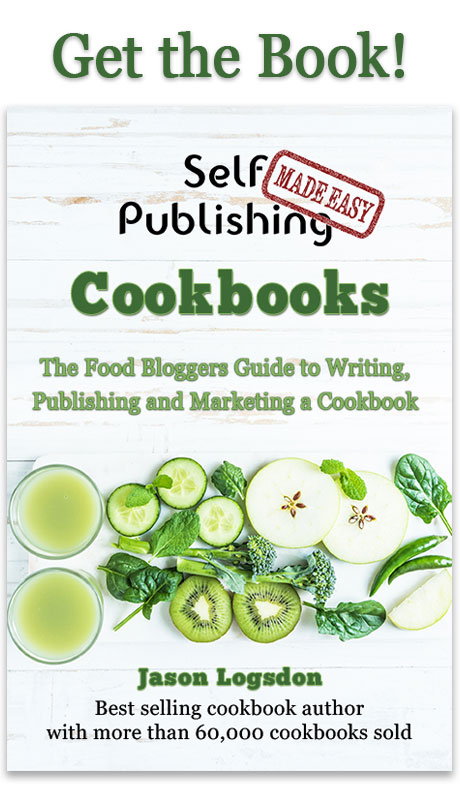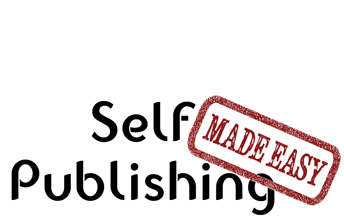Existing Users Sign In

Publishing Master Course Outline
- Self Publishing Master Course Introduction
- Before You Get Started
- Overview of the Publishing Process
- Determining Your Cookbook Goals
- Determine Type of Cookbook
- Consider a Sample Book
- Determine Book Subject
- What Makes a Good Cookbook Subject
- Brainstorming Cookbook Subjects
- Determine the Competition In a Cookbook Subject
- Finding Complementary and Competitive Products
- How to Generate a List of Keyword for Your Cookbook Subject
- Competitive Breakdown of an Amazon Sales Category
- Finally Choosing Your Cookbook Subject
- Research Cookbook Subject
- Choosing Your Avatars
- Researching the Cookbook Subject
- Researching Material for Your Cookbook
- Outlining and Notetaking Tools
- Write Cookbook and Recipes
- Keys to a Well Written Book
- Components to a Recipe
- Recipe Layouts
- Recipe Attribution
- Book Writing Tools
- How to Back Up Your Cookbook Files
- Photograph and Test Recipes
- How to Test Cookbook Recipes
- Food Photography Tips
- Proofread and Edit Cookbook
- Types of Cookbook Editing
- Tips for Self Editing Your Cookbook
- Finding Outside Editing Help
- Proofreading and Editing Resources
- Publishing Formats
- Types of Cookbook Publishing Formats
- Choosing a Self Publishing Printer
- Comparison of Print on Demand Cookbook Printers
- CreateSpace Cookbook Publishing Review
- IngramSpark Cookbook Publishing Review
- Ebook Publishers and Distributors
- Design Cookbook
- Cookbook Design and Formatting Guidelines
- Choosing A Great Cookbook Title
- How to Design a Cookbook Cover
- What Fonts to Use in Your Cookbook
- Cookbook Front Matter
- Cookbook Back Matter
- In-Book Marketing
- How to Design an eBook
- How to Create an ePub File
- Previewing and Testing eBooks
- Finding Outside Design Help
- Publish Cookbook
- How to Price Your Cookbook
- How to Write a Selling Book Description
- Determining Your Amazon Categories
- Choosing Publishing Keywords
- How to Publish on Amazon With CreateSpace
- How to Publish an eBook
- How to Publish On the Kindle
- How to Publish on the Nook
- How to Publish on iTunes
- How to Publish Your Book Through Smashwords
- How to Create and Sell a PDF on Your Blog
- Wholesaling Cookbook
- Methods of Cookbook Wholesaling
- Where to Wholesale Your Cookbook
- Developing a Wholesaling Line Sheet
- Promote Cookbook
- How to Launch Your Cookbook Successfully
- Getting Amazon Reviews
- Newsletter Promotions
- Free Content and Previews on Your Blog
- How to Get Blogs to Write About Your Cookbook
- General Articles
- All About ISBN Numbers
- How Do Cookbook Royalties Work?
- Financing Your Self Published Cookbook
- What is the Amazon Sales Rank?
- Cookbook Writing Resources
- Understanding Book Margins
- PDF Self Publishing FAQs
- How to Poll Your Blog Readers
- What is DRM
- Great Books to Learn About Food and Recipe Writing
- KDP Select - What Is It and Is It Worth it?
- Cookbook Design Programs
- Amazon Top Cookbook Reviewers
- Should You Publish Your ebook Directly or Use a Distributor
- Case Studies
- Sales Channel Revenue Breakdown with Modernist Cooking Made Easy
- Cookbook Writing and Marketing Templates
- Recipe Testing Worksheet Templates
- Review Requests Templates
- Cookbook Newsletter Promotion Templates
- Cookbook Manuscript Templates
Existing users please sign in to continue reading this article.
Welcome to Self Publishing Made Easy!
Publishing a Cookbook can be
Challenging
We will make the process clear and easy, allowing you to focus on creating a remarkable cookbook without any distractions.
Easily Navigate The Publishing Process
Benefit From a Community of Other Self Publishers
Maximize Your Distribution and Profit
We are the leading cookbook self publishing member site on the internet and are here to help you navigate the sometimes tricky path of self publishing. We provide step by step guidance to publishing your own cookbook as well as access to our active and helpful community of self publishers.
Or Get More Information about Self Publishing Made Easy
Researching the Cookbook Subject
Click here to get great self publishing content via emailOnce you have picked your avatars you can start to really narrow down what content they will want. This usually takes the form of a rough outline of topics. It's normally best to start with a high-level look and then drill down into specifics as you go along.
There are many ways to keep track of this information and we offer some recommendations for outlining tools that you can use. At it's most basic, a simple text-based outline can do at this point, for example:
Baking Book Example Outline
Bread Baking Basics
How To Measure
Dry Ingredients
Wet Ingredients
How To Knead
Recipes
Boule
Sandwich Bread
White
Rye
You shouldn't worry much about sections, chapters, or too many other specifics at this point, you mainly want a detailed list of the information you intend to cover. The organization of it into the form of a book can come once you know what most of your content topics will be.
There are many places to get ideas for the content you should be covering and you always need to keep the desires of your avatars in mind as you search through it.
Content From Your Experience
In most cases, you will be writing a book about a cooking subject that you already have experience in. With your knowledge you can begin to sketch out the content you think people will need. Use your experience from writing recipes and articles on your blog, as well as learning the information yourself.
- What questions did you run into when learning this information initially?
- Read back over your comment threads for blog posts similar to the subject your book is on. What questions did people have?
- Have readers or friends emailed you questions about your book's subject? What were they?
All of these avenues from your personal experience will help you start outlining your content.
Check Out The Competition
Take your list of complementary and competitive products and read through all the reviews and "Customer Questions & Answers" entries. What questions are often asked? What do people like about the competing books? What do they say is missing? If some of the complementary products are popular, should you cover them in your book?
Also look at the table of contents and "Look Inside" feature of the competing cookbooks. What do they cover? What seems to be missing?
Remember though, not all of the competitive and complementary products for your book's subject will be right for the avatars you picked. Be sure to filter the content based on what your avatar actually needs and not just feel obligated to include it all.
Ask Your Readers
As a food blogger, you have an invaluable resource you can tap - your readers. If your cookbook subject overlaps your blog at all, it's a great idea to reach out to your readers and ask them what they'd like to see in a book about your subject.
There are many ways to reach out to them, and you probably know what method works best to drive engagement for your specific readers, but a few examples are:
- Write a basic blog post and ask users to comment about what they'd like
- Post a Facebook poll your users can vote and comment on
- Send a series of tweets asking your users their thoughts
- Post on your forums, asking for feedback
- Use a 3rd party polling company to generate a poll
- Send your questions in a newsletter to your readers
We look at these methods more deeply in our article on How to Poll Your Blog Readers.
Talk With Your Network
One of the most valuable methods of learning what people want in your cookbook subject is to sit down and talk with them. This can be done through email, IM, texting, or tweeting, but it's most valuable over the phone or face-to-face.
Do you have a friend that is interested in your cookbook subject? Invite them out for a beer or some coffee. Ask them what they find interesting about that subject and what they'd like to learn about it. If they already are involved in your subject, ask them what challenges they face and what difficulties they run into. Ask them what they now know that they wish they knew when they started.
Conversations like this can lead to some great insights about must-have content for your book.
Force People to Do It
Another great way to determine content is to find someone that fits your avatar and get them to actually cook what your book is about. So find a friend that is interested in baking bread and get together and make some bread. Talk them through the steps and encourage them to ask questions. What is easy for them? What questions do they have? What do they struggle with? What would they like more information about?
These interactions will help uncover a lot of nuanced content you weren't aware you needed.
When you are writing a book you often become so immersed in the subject that you forget many people don't know the most general details. In my book on whipping siphons I tried to give a full explanation about how the siphon works, what the pressure does, and how it could be used.
Then during my testing the most asked question was "Which way do I hold this?"
Despite my best attempts to provide a comprehensive look at the mechanics of the whipping siphon, I had forgotten to mention how to hold it upright. It only took one person at my testing party shooting the foam on the wall to make me realize I should probably mention it in my book.
Follow the Cries for Help
One of the great things about the internet is that you can get an answer for any question you have. There are lots of places to find questions people have including message boards, Reddit's cooking subreddits, Seasoned Advice, Yahoo Answers and blog comments. Try to search these sites for questions about your cookbook subject. If people regularly have these questions, there's a good chance you should be covering them in your book. Our Researching the Cookbook page provides more information about these online communities.
On many of these subject specific sites you can also ask them what they'd like to see in a book on your subject. Most community members are more than happy to share their thoughts on what would go into a good cookbook.


